
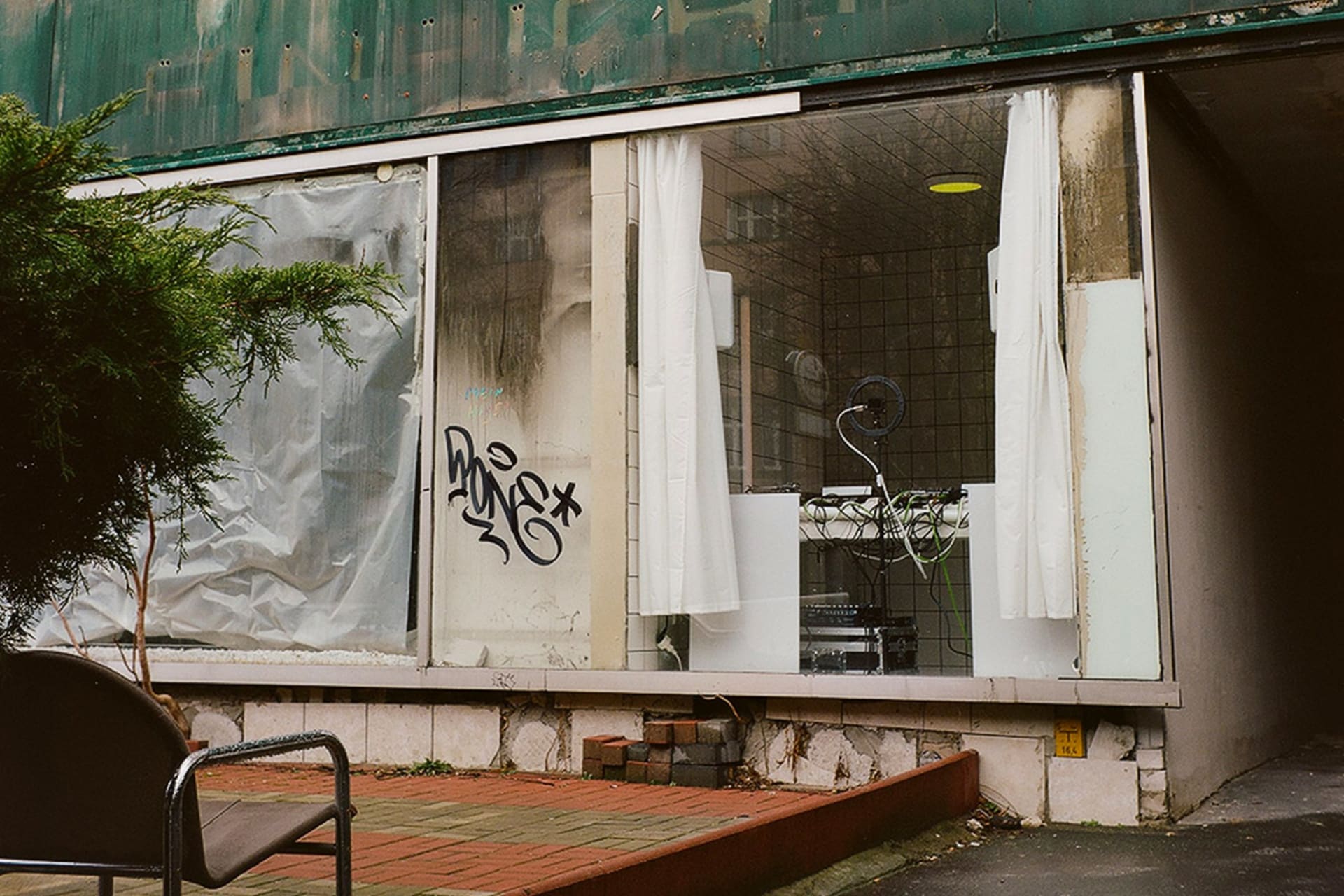
Berlin’s DIY Radio Scene Booms, but Braces Itself for an Uncertain Future
With more independent players than ever, Berlin’s streaming landscape looks strong–for now. Without financial support, these community-focused platforms may not last.
For a moment in mid-2019, the future of independent online radio in Berlin looked bleak. The city’s most recognizable station for electronic and experimental music, Berlin Community Radio, announced it was shutting down. “It is with heavy heart that we came to this decision, but we reached a dead end and spirits have fallen low after losing all funding in 2018,” a statement read in January of that year.
Founded by Anastazja Moser and Sarah Miles in March of 2013, BCR ran for six years, and hosted over 100 shows covering the arts, culture, literature, feminism, and a wide variety of music genres. Somewhat surprisingly, it was the first of its kind in Berlin, rivaling NTS in London, Dublab in Los Angeles, and Subcity Radio in Glasgow. It was also fertile ground for some of dance music’s most daring artists; shows by Hunee and Call Super helped launch the station, and BCR would go on to host shows by Laurel Halo, rRoxymore and Palms Trax, among others. During its heyday, BCR also threw semi-regular events at clubs like Acud Macht NEU and Cookies, which helped raise funds while offering fans a chance to connect with the station and its artists IRL. However, as the coronavirus forces public spaces across Europe to close, in-person fundraisers have become impossible. This puts the DIY music industry into an even more precarious financial situation, making viable solutions even more critical to survival.
By loading the content from Mixcloud, you agree to Mixcloud’s privacy policy.
Learn more
Despite BCR’s closure, today Berlin’s independent online radio landscape looks stronger than ever. Since 2015, the Lichtenberg-based not-for-profit Cashmere Radio (who declined to comment for this article) has broadcast a huge array of electronic and experimental sounds while hosting regular events at its studio, which is open to the public. Less regularly, Cashmere has hosted fundraising events and parties at spaces like Berlin’s Klunkerkranich and Acud Macht NEU, where in 2019 it hosted its 5th anniversary party. And just two months after BCR went off the air, Simon Kaiser, co-founder of event series TRADE, launched CCTV Radio.
Recently, a new player has also entered the game. Described by its founders as an independent music platform, HÖR Berlin launched in the middle of August, 2019. Already, HÖR (which translates to hear in English) has 50,000 subscribers on YouTube and 26,000 fans on Facebook. The two men behind the platform are Ori and Charly, who DJ and produce as TV.OUT. They say the idea for the platform came when they noticed a gap in the market. Aside from CCTV, which broadcasts once a week, no one was providing regularly-filmed electronic music broadcasts from Berlin. With an early venture investment and a multitude of connections in the music industry, the duo laid the groundwork for their instantly-recognizable Kreuzberg studio. They hand-built everything—from the clean, white tile walls to the DJ booth—and some of their earliest big-name bookings came through friendships they’d forged over the years.
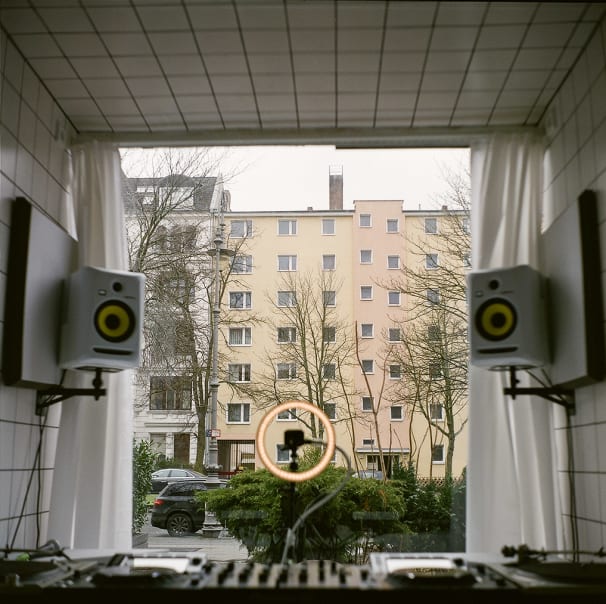
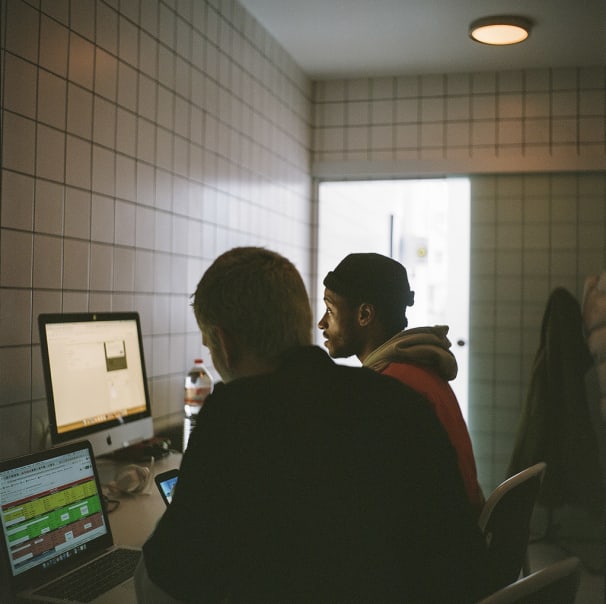
HÖR sits on the ground floor of an apartment block, taking over what used to be the storage room of a long-vacant bar, which still sits abandoned next door. The space is small—just a DJ booth and an office—but it works. The flats above are mostly empty. And since HÖR streams Monday through Friday from around 4PM to 10PM, there have been no issues with noise so far. Whether or not that will change when the flats fill up is a problem they’ve decided to deal with if and when it comes. For now, Ori and Charly have their hands full with day-to-day operations, which these days focus mostly on growth. Not necessarily of the monetary kind, mind you, though funding is increasingly a concern. Instead, they plan to build a community around their platform, which they hope will extend into artist interviews, on-air tech talks, workshops, panels, events, and collaborations with clubs and around the city and beyond. “We really want this,” Charly says.
To help, Charly and Ori have enlisted a team of volunteers, or as they call it, a “collective based in Berlin,” with members from Latvia, Spain, Bulgaria, Germany, Ukraine, and elsewhere. Formed in January, the collective has allowed Charly and Ori to focus on taking the necessary next steps to realize their dreams.
While the music on HÖR spans the electronic gamut (and beyond), you’d be forgiven for thinking it was techno-focused. Some of the highest-profile bookings so far include Ellen Allien, VTSS, Silent Servant, Eric Cloutier, Mor Elian, and Tommy Four Seven—all household names in the underground techno scene. But Charly and Ori stress that while they love the genre, their booking policy is, put simply, “not commercial music,” and say they’re trying to be as diverse as possible. “But it’s not that easy,” Ori says. “Everybody we know is involved with techno. We don’t have contacts in, like, the hip-hop scene, which we would love to get, but it will take time. That’s why I said from the beginning: this will be a platform for everything. Not just techno.” Shows by Paramida, Katzele and Frans Ambient and a recent ambient broadcast by Nick Höppner (whose son adorably came along for the show) signal that their efforts to broaden their reach beyond techno are paying off.
Charly and Ori also see these efforts as helping foster the local Berlin music community, and they think outlets like HÖR play a major role in doing so. While millions of tourists visit the city each year to go tor clubs like Berghain and (the now-closed) Griessmuehle, there are plenty of highly-talented Berlin DJs with no interest in setting foot behind the booth at one of the city’s main clubbing tourist attractions, and HÖR gladly offers them a place to showcase their sounds.
Ori mentions, for instance, a January show by Death To Our Friends. “They have really brilliant collections,” he says. “He did one hour of soundtracks. It was really crazy,” Charly adds. “Oh, and he had a story about every track.” The stories were told off-air, but the pair are keen to introduce a traditional radio format—tracks mixed with conversation—to some of their broadcasts as soon as they can.
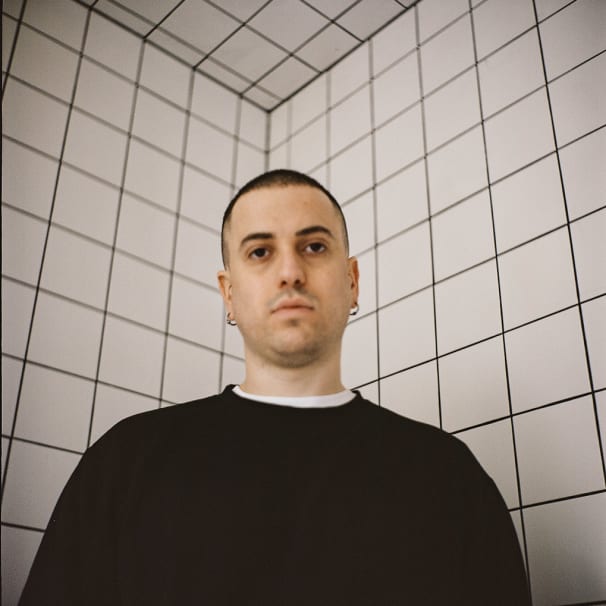
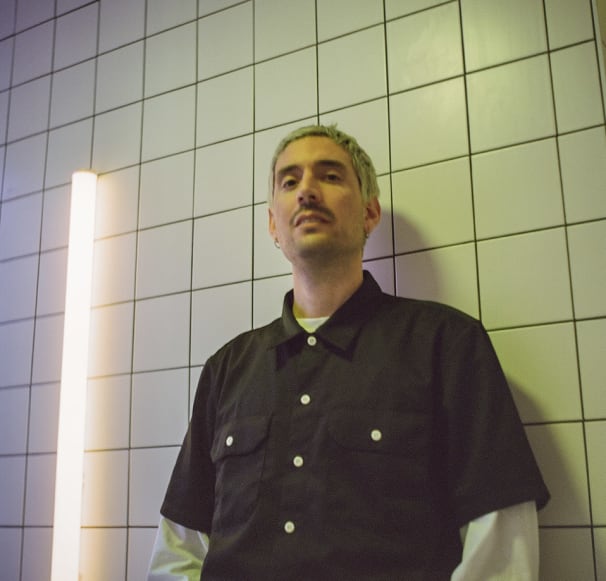
But future plans like this, as well as their other goals, will depend on money. Without it, “our destiny is like Berlin Community Radio,” they say with a wry laugh. They’ve applied to several government organizations for financial assistance, and they’re looking at selling merch. Using the Bandcamp model, HÖR shirts and other items would be available for a minimum price, with the hopes that supporters will chip in a little more. They also haven’t ruled out the possibility of asking DJs to pay a fee. “This is really common in the UK, for example, because every DJ requires a lot of maintenance work, like artwork, SoundCloud, and our time,” Ori says. But this would only be a last resort. “We don’t want to, but we will use everything to survive,” Charly says—and this includes advertising partnerships.
When I mention Charly’s answer to CCTV’s Tres Folly and Tianna Strickland a few days later, they both laugh riotously. “I feel like some people look down upon sponsorships and stuff. But people need to make money,” Strickland says. Clearly, they empathize. Strickland and Folly have been with CCTV since October. Both work on a volunteer basis, and only one day a week, but their passion for the project and its survival is evident.
Like HÖR, CCTV’s Alte Münze station is much smaller than it appears on camera. It’s one cozy yellow room with a sink, a few chairs, and a DJ booth, above which sits a stuffed crow with a cigarette hanging from its beak. Unlike HÖR, the music policy at CCTV stands out for its lack of recognizable acts. Aside from LYZZA, very few (if any) of the station’s guests have had serious attention from the press. That’s on purpose, say Strickland and Folly. “I would say we’re actively trying to bring the diverse community of Berlin,” Strickland explains. “We’re trying to showcase people that are still equally as good, but might not get as much recognition.”
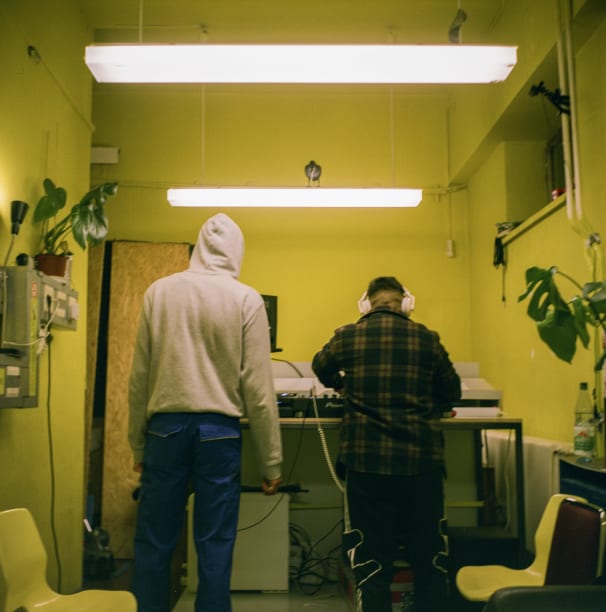
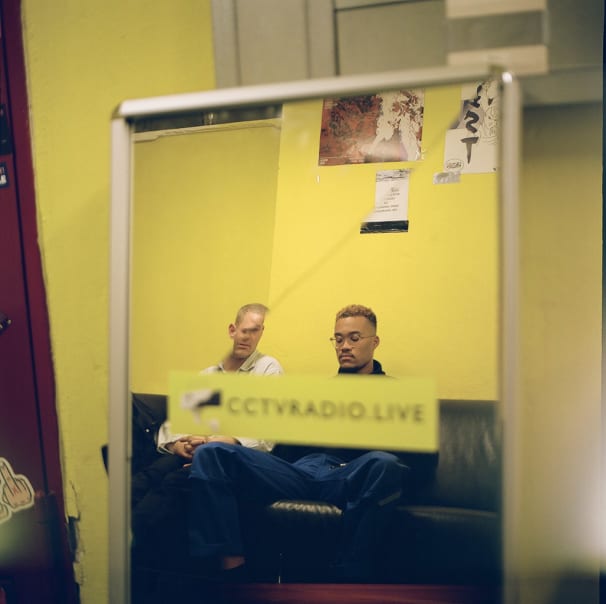
“There’s so much cool stuff happening that’s unheard of and undiscovered,” Folly elaborates. “We don’t need to bring more of the same.” CCTV is also much more “casual” than other stations, he continues. “It’s not so much, ‘Oh, I’m going to play on the radio.’ It’s more like ‘Hey, show us some tunes’ shows. We want to vibe to it.’”
Strickand agrees. “I think it’s definitely more focused on creating a space where everyone can feel relaxed, where it feels like you can take a chance and explore,” she says. “I don’t think it compromises quality at all,” Folly adds. “I just think it’s more chill.” Along with the station’s Friday broadcasts, CCTV currently hosts three monthly shows: After School Radio, No Shade Radio, and Baron Mac, who provides a pre-recorded stream from Korea and showcases local guest DJs.
Like HÖR, the crew at CCTV have plans for growth and expansion, including events. In December 2019, they partnered with fellow Berlin streaming platform Grapevine Radio for a fundraising event at Arena Club Berlin. “It was very successful,” Folly says. “So we’re open to the idea of throwing CCTV events,” Strickland adds, “but there’s nothing planned as of right now.” They say Grapevine will soon be programming its own day on CCTV. And CCTV will begin streaming on Saturdays, though only spontaneously at first, “until we have more people on board, so we can function two days a week,” Folly says.
They’re also looking for government funding, and would like to launch a merchandise line. “I would love to have a CCTV shirt myself!” Folly laughs. Boiler Room-like advertising partnerships are also “absolutely” something they’d consider. But putting these plans into motion on an all-volunteer staff and with no incoming funds is difficult. And until they expand programming, increase CCTV’s popularity, and bring in more volunteers, most of these ideas are likely to remain dormant.
This is especially true in the new coronavirus era. “It’s pretty much forced us to put our operations on halt for the time being, in order to keep our community safe and at home,” Strickland says. Though she notes that the virus, which has placed an intense burden on many sectors of the economy, hasn’t changed the station’s long term financial goals. “There are no financial expectations on our end, besides keeping up with the studio costs,” Strickland says. To make sure that happens, CCTV has launched a “Save CCTV Radio Berlin” campaign on GoFundMe so that fans can help cover rent and running expenses.
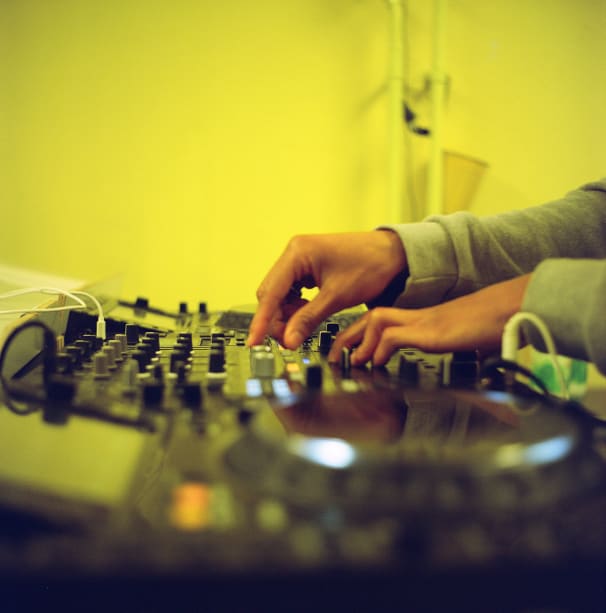
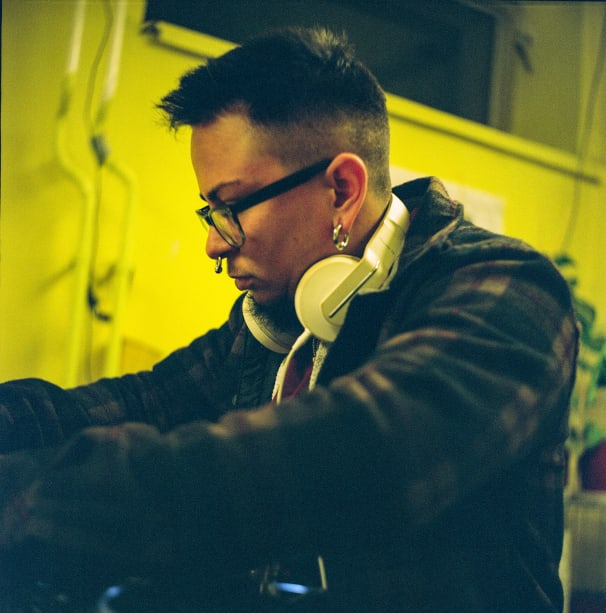
While HÖR’s streaming schedule has remained consistent — with several shows happening daily — behind the scenes, things have changed “drastically,” they say. “We do not allow the artists to come with friends and guests, and in any given time, we make sure there are only two individuals inside our studio, staying far from each other in separate rooms. We are also cleaning and sanitising the whole space before, between and after all sets.” In terms of expenses, brand partnerships are more relevant than ever, they say, “It just has to fit our agenda and principals.” In the meantime, they’re discussing the implementation of a donation model so fans can support the station. “Stay tuned for further updates.”
Cashmere, meanwhile, has closed its Lichtenberg station, with artists broadcasting from home. But regular broadcasts will be going ahead, “as per our schedule,” the station notes.
Difficult as it may be for platforms like these, Folly and Strickland stress that HÖR and Cashmere are not the competition, saying there’s a strong sense of solidarity between them. Often, volunteers from one platform will work or DJ at another.
What really matters are the networks these independent platforms are building, which help connect members of the community in ways that major streaming platforms like Spotify cannot.
With traditional community hubs in Berlin and other major cities continually under threat, the importance of these locally-built networks is only increasing, but whether or not they can find a way to survive remains to be seen.
Chandler Shortlidge is a freelance journalist based in Berlin. He’s written for DJ Mag, Mixmag, RA and Attack Mag, and is currently the part-time editor of Beatportal. Find him on Twitter.
Published April 21, 2020. Words by Chandler Shortlidge, photos by Tianna Strickland.

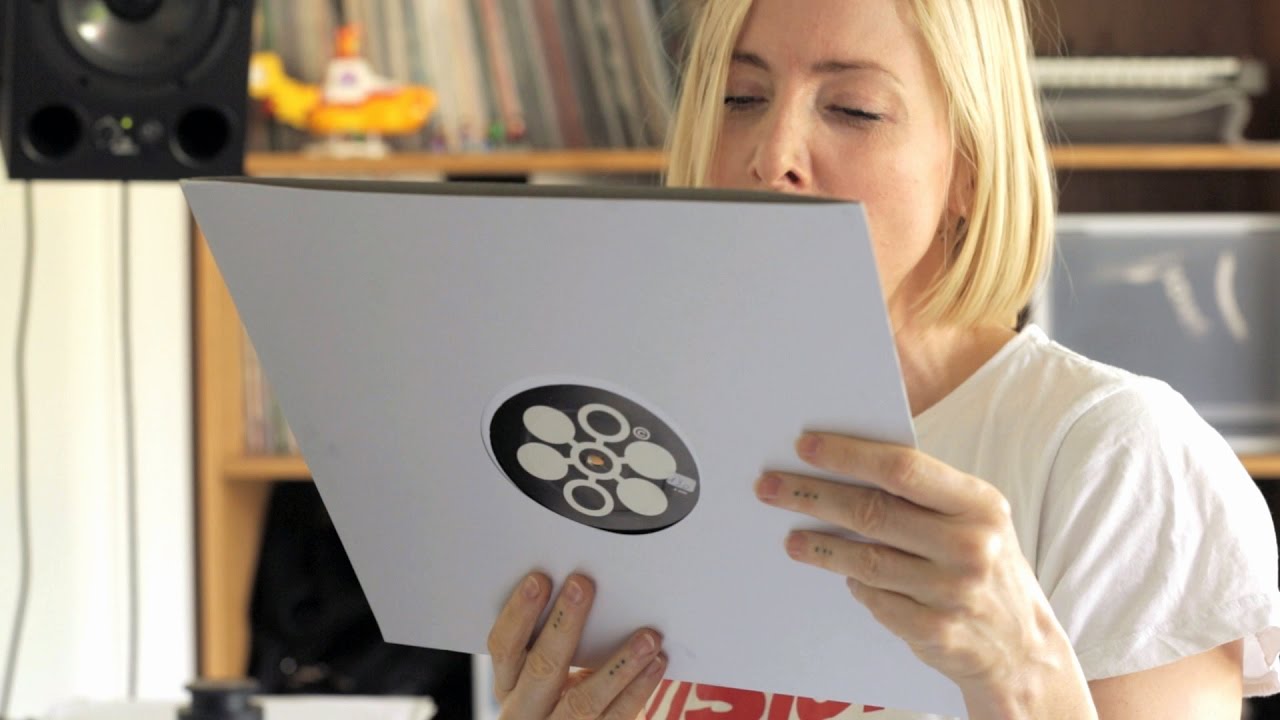




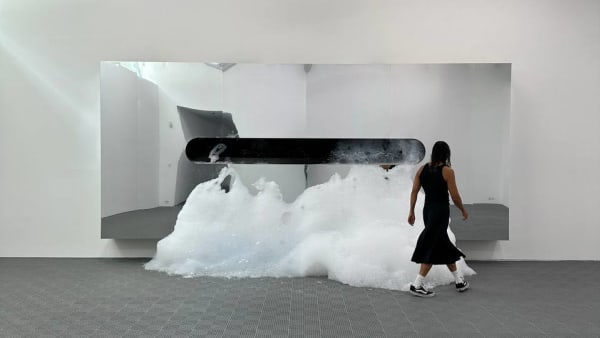
Follow @electronicbeats